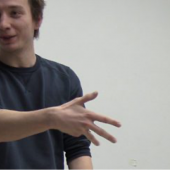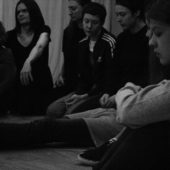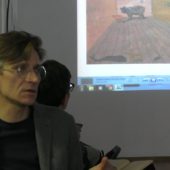Video materials by the permanent lectors: Alexander Skidan
Hegemony and Counter-Hegemony in the Cultural Field: Reconsidering the Russian Modernist and Non-Conformist Writing. Stella Art Foundation, 19/05/2012
The post-Soviet period has seen a massive re-interpretation (and re-appropriation) of the Russian post-revolutionary literary tradition as a powerful testimony against the communist project and its disastrous consequences in both culture and politics after 1917. Such writers as Platonov, Shalamov, Mandelstam and even Mayakovsky (to name but a few) are seen exclusively as a victims of the regime, whose writings testify to its “inhuman, totalitarian nature.” The paper seeks to challenge this dominant ideological trend from a leftist perspective and to reclaim the post-revolutionary literary heritage as one that – explicitly or implicitly – retains the utopian horizon and urges radical social and political change. This is particularly evident in Mandelstam’s later poetry, on which I will focus. My analysis will use the neo-Gramscian notion of counter-hegemony and Walter Benjamin’s insight into the class relation to the past. As Benjamin famously says in his Theses on the Philosophy of History (1940): ‘The danger affects both the content of the tradition and its receivers. The same threat hangs over both: that of becoming a tool of the ruling classes. In every era the attempt must be made anew to wrest tradition away from a conformism that is about to overpower it.’





